More Tips for your Traveling Oxygen Patients
Sep 09, 2017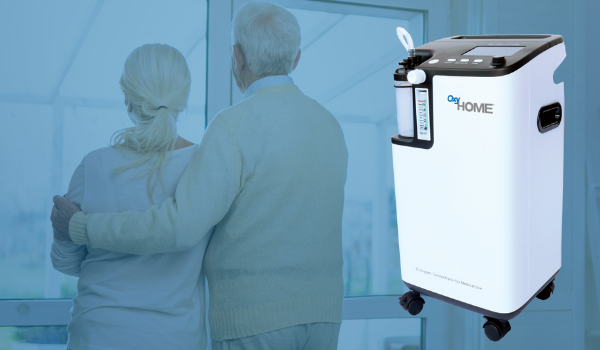

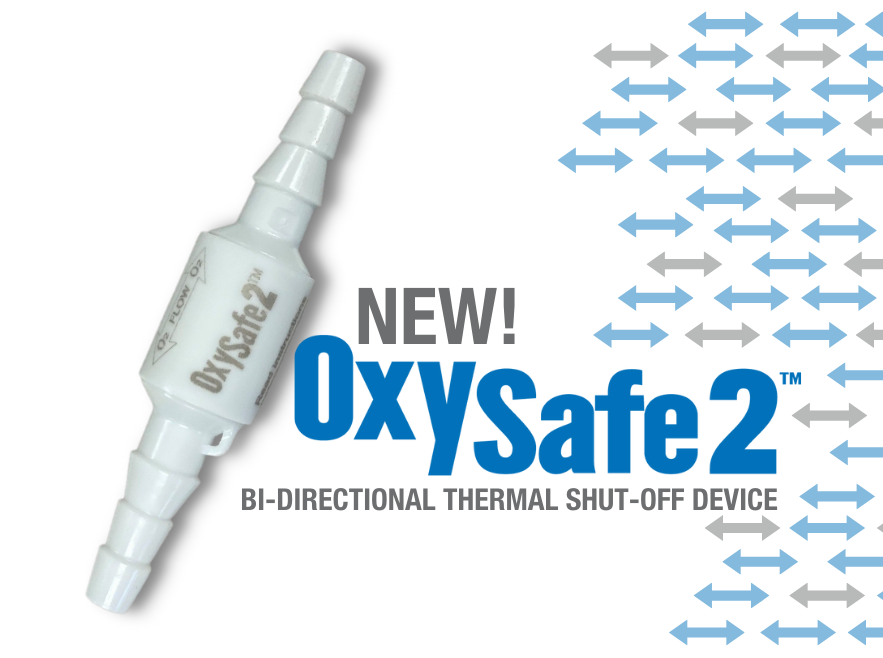

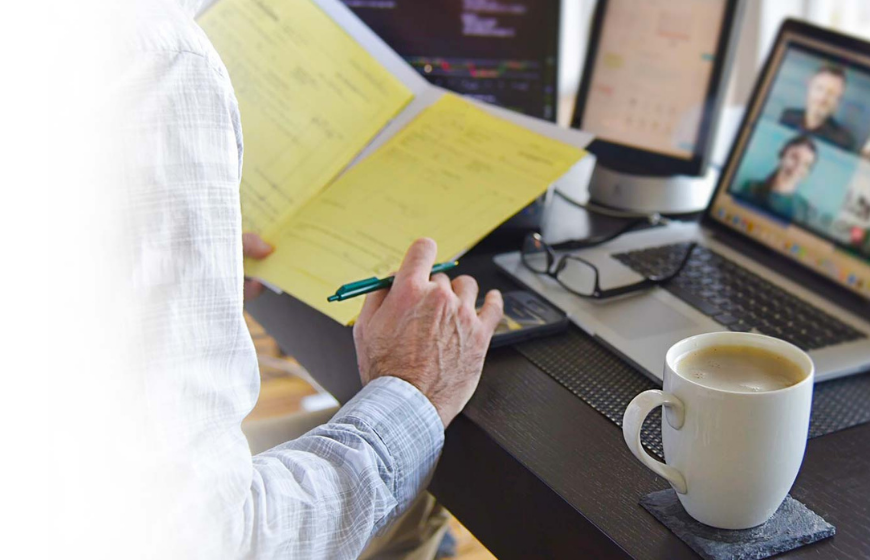

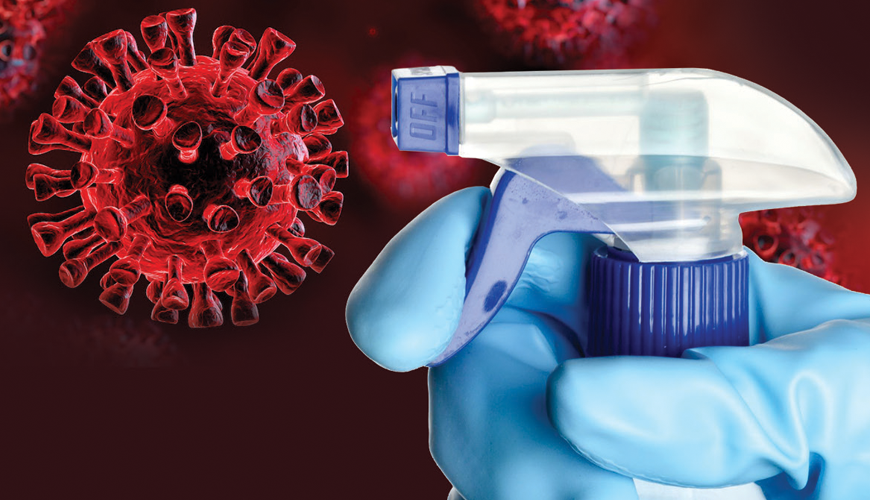
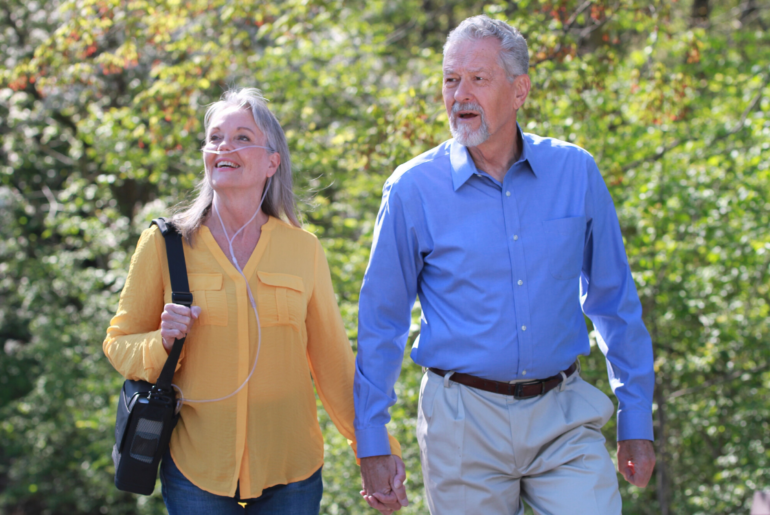
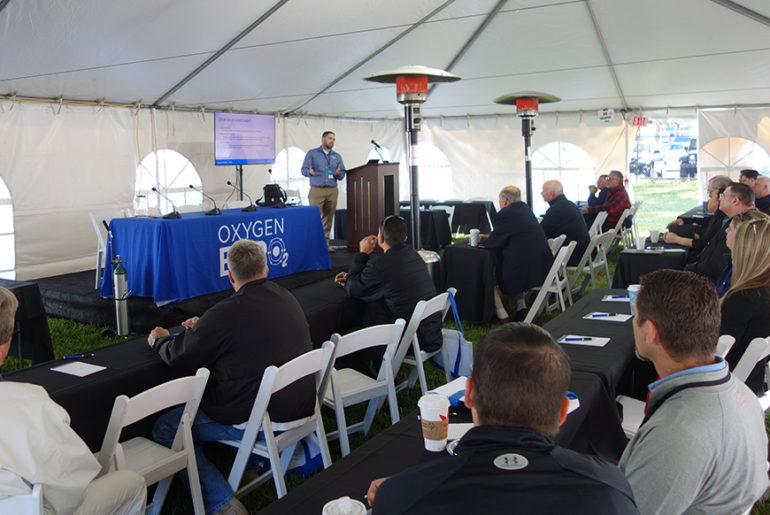

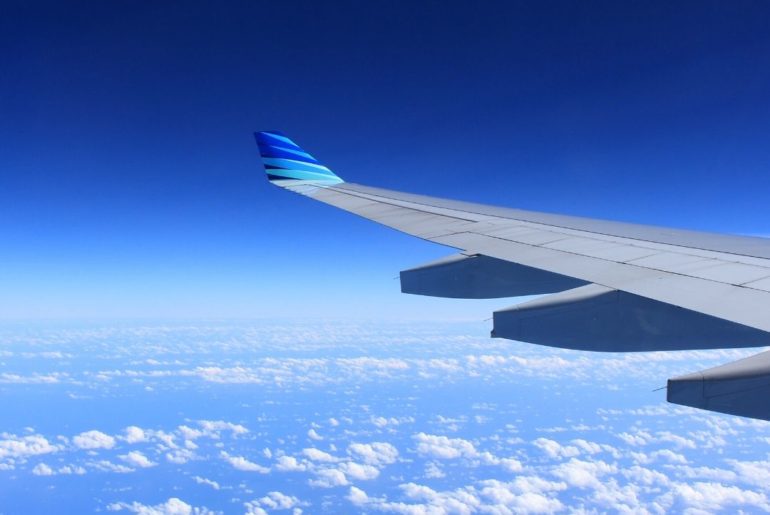

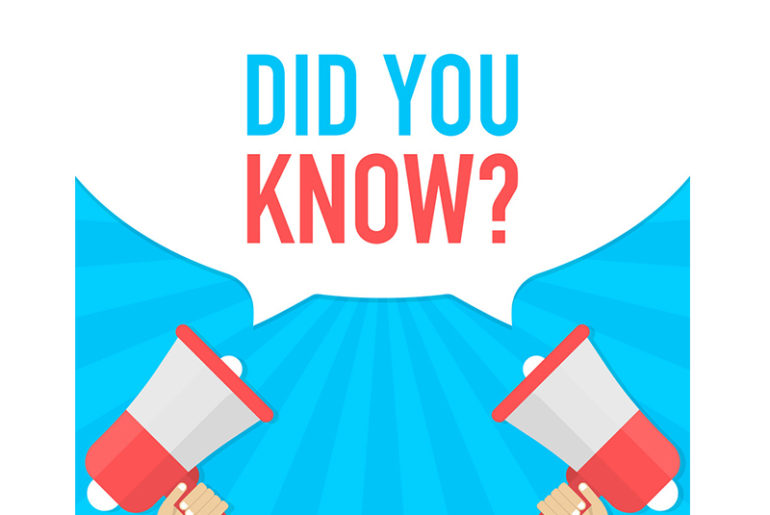
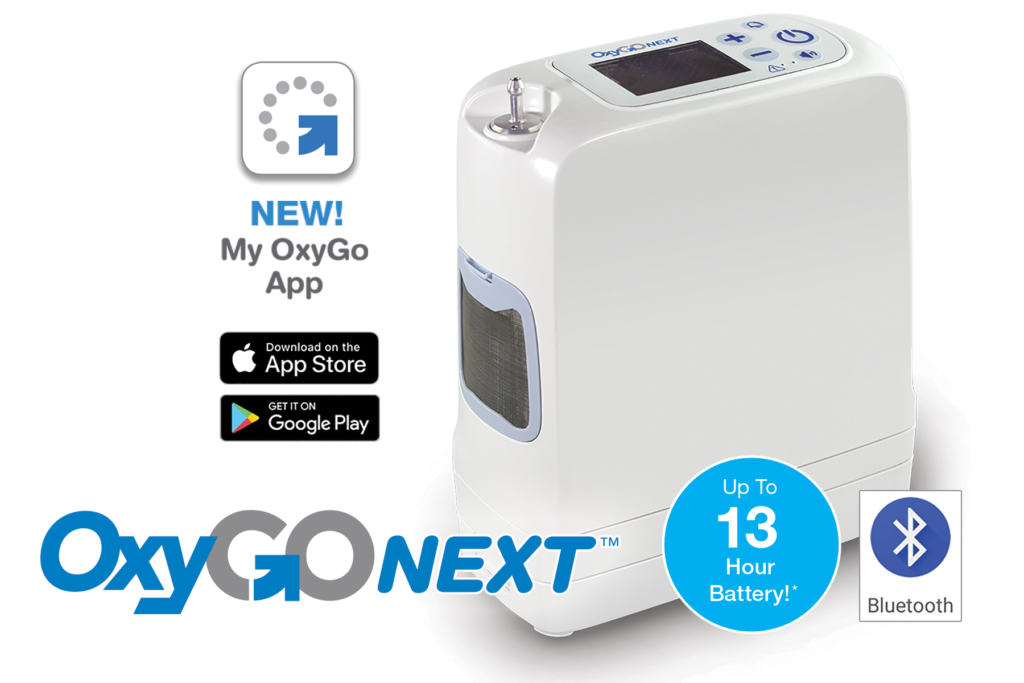


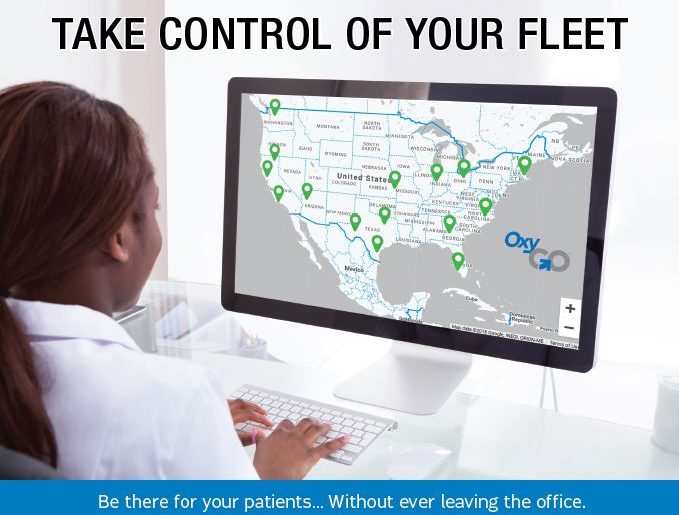




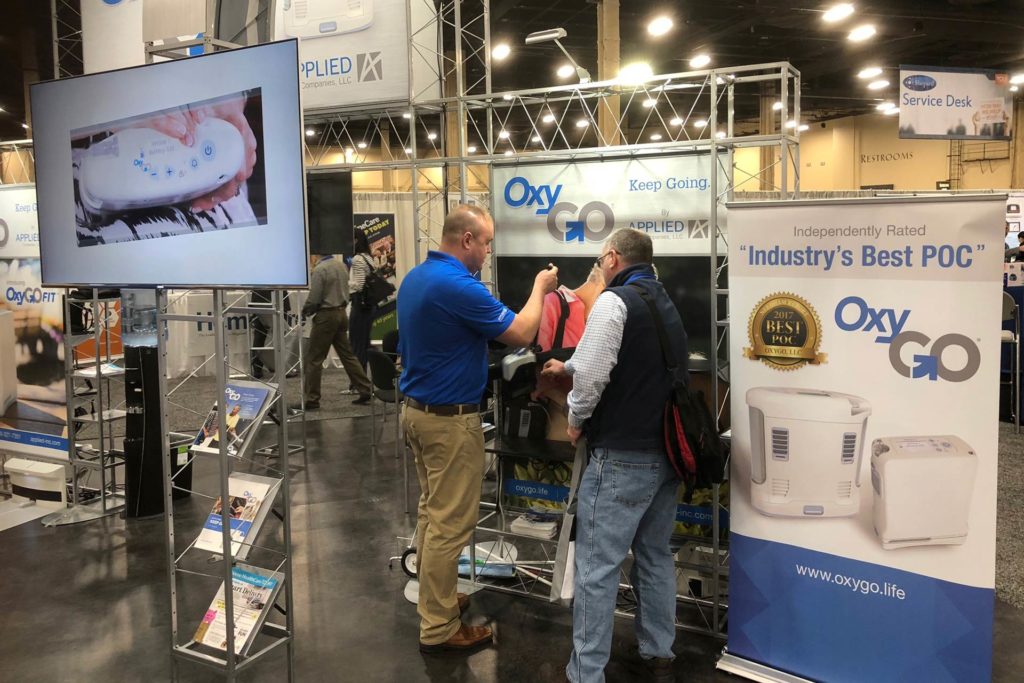





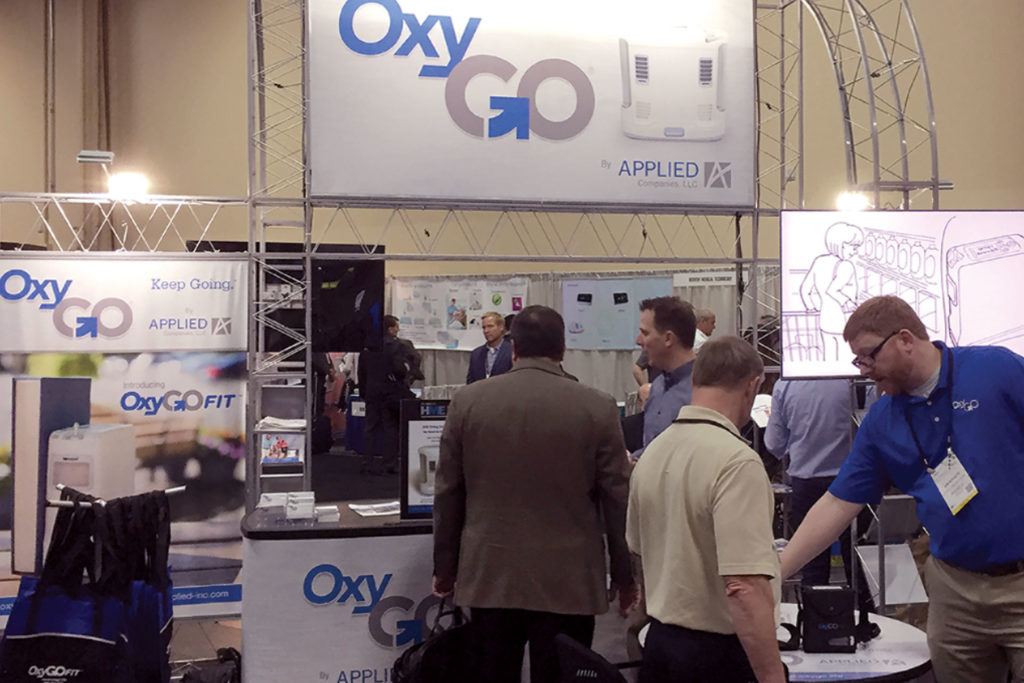












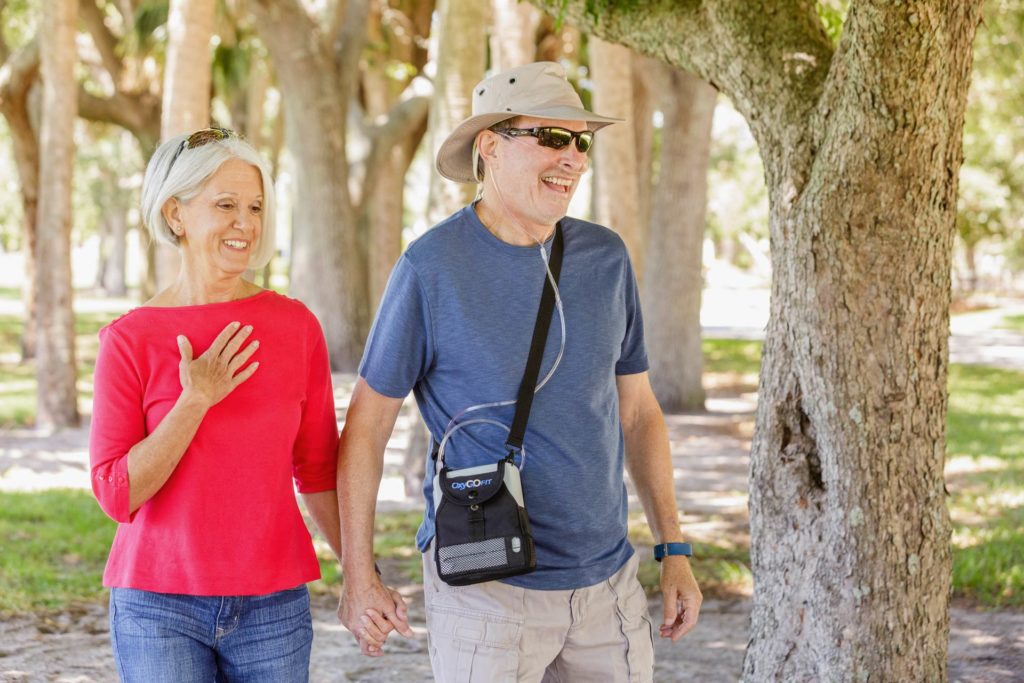



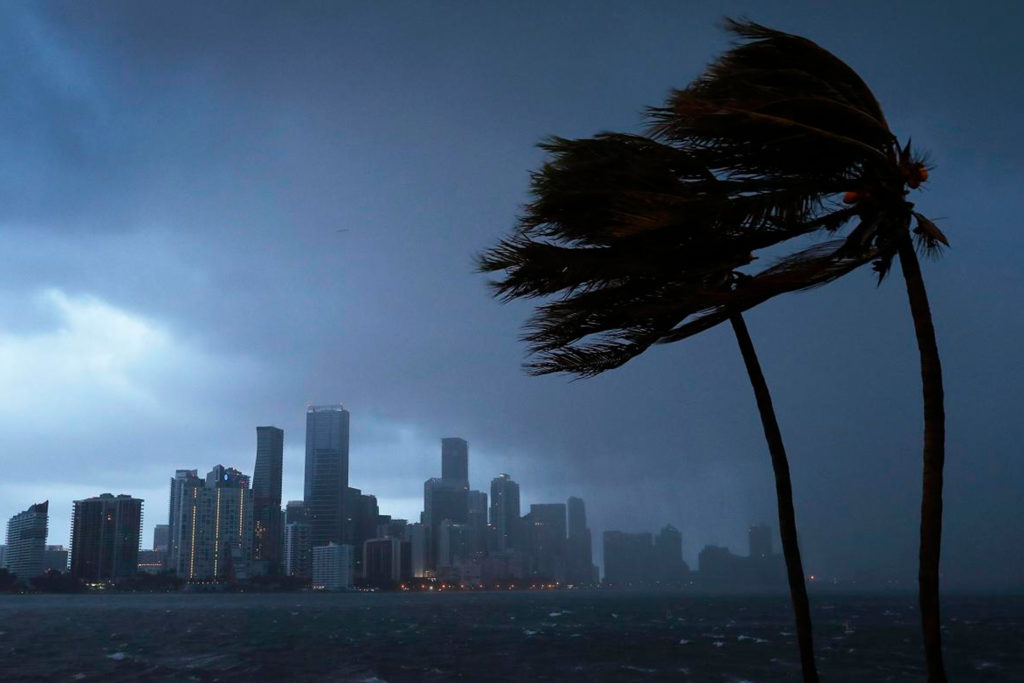




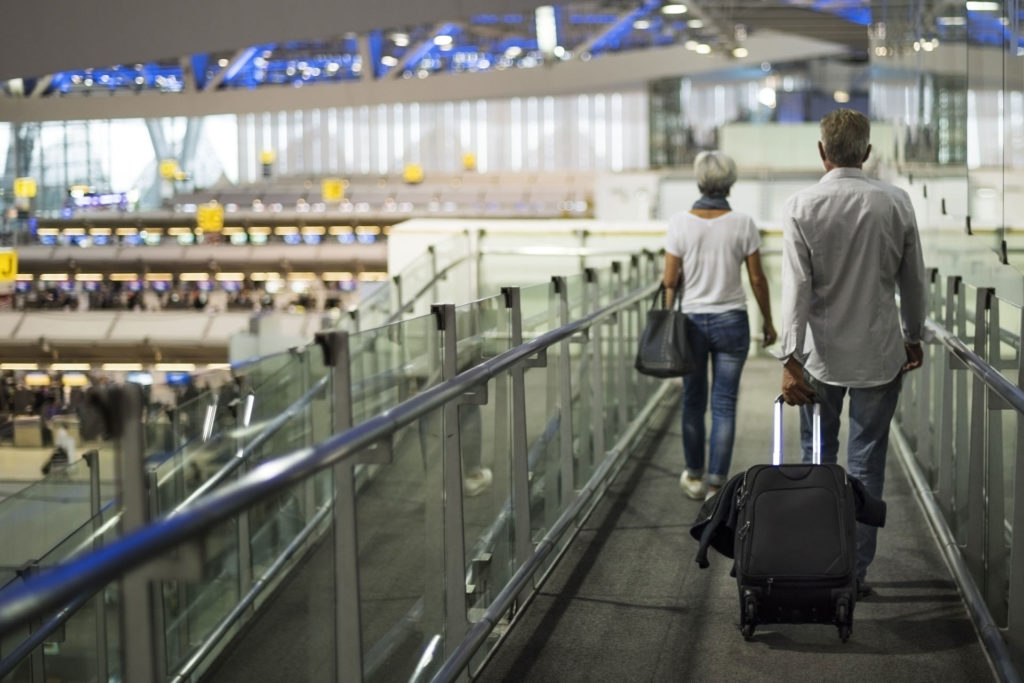
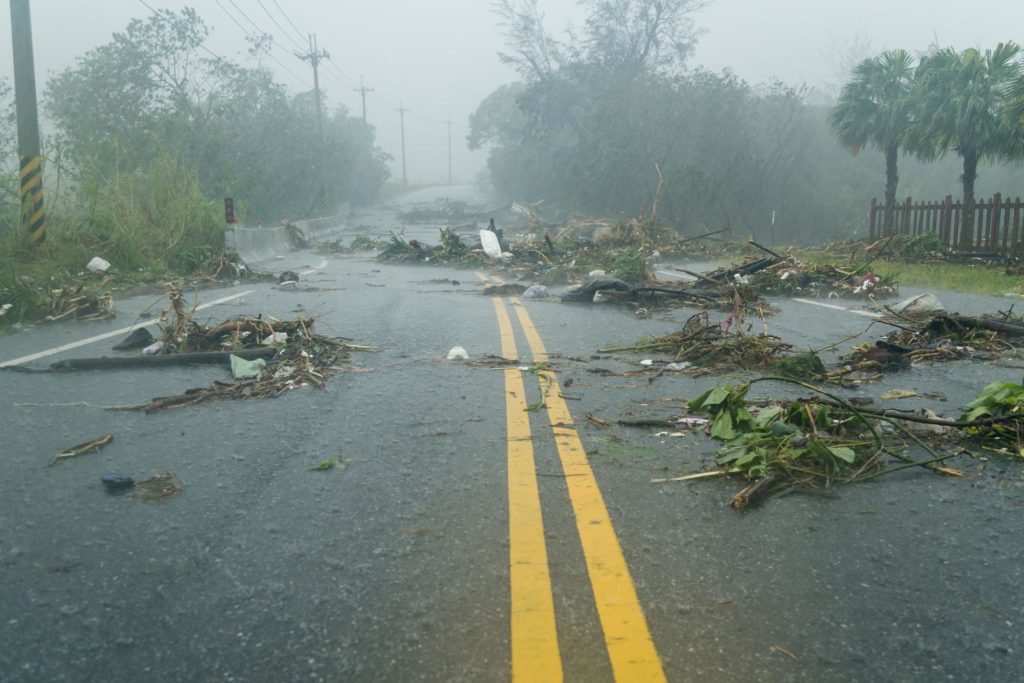




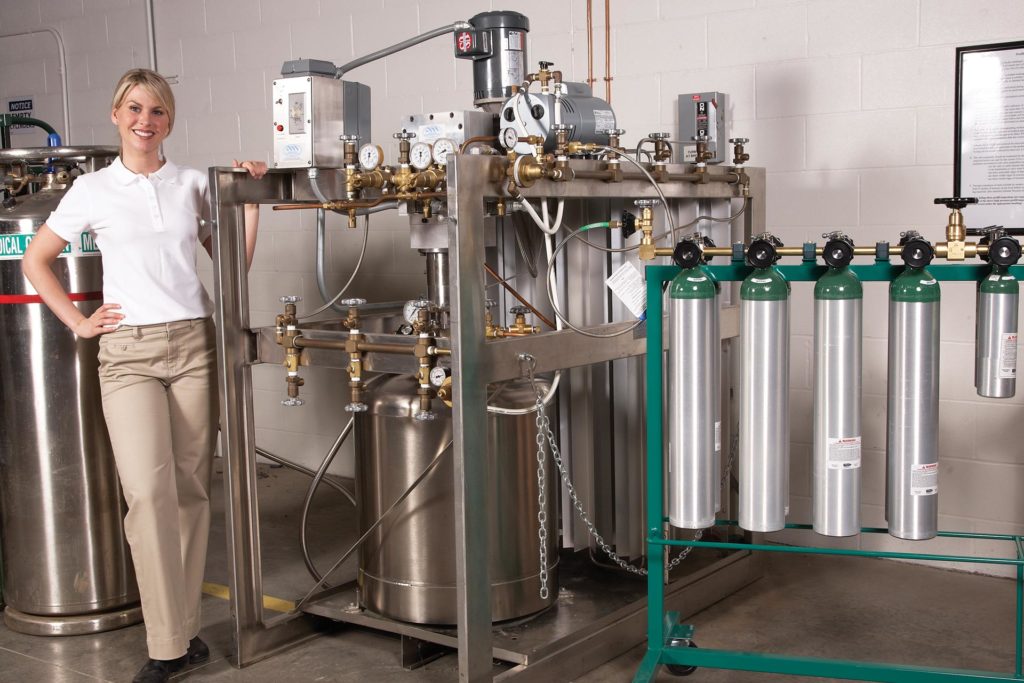

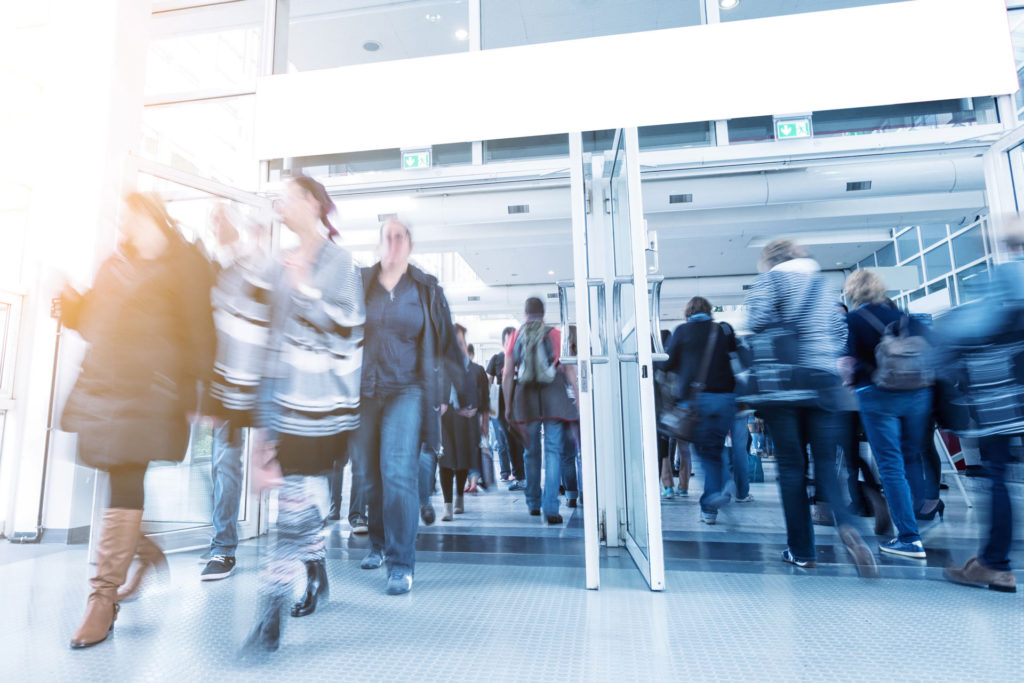
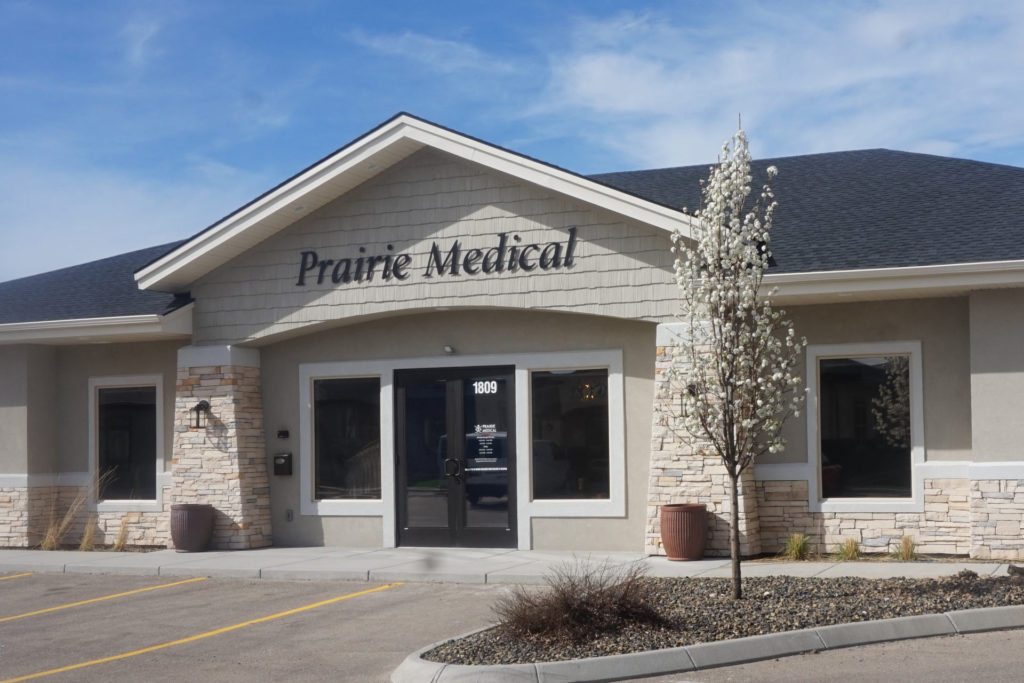
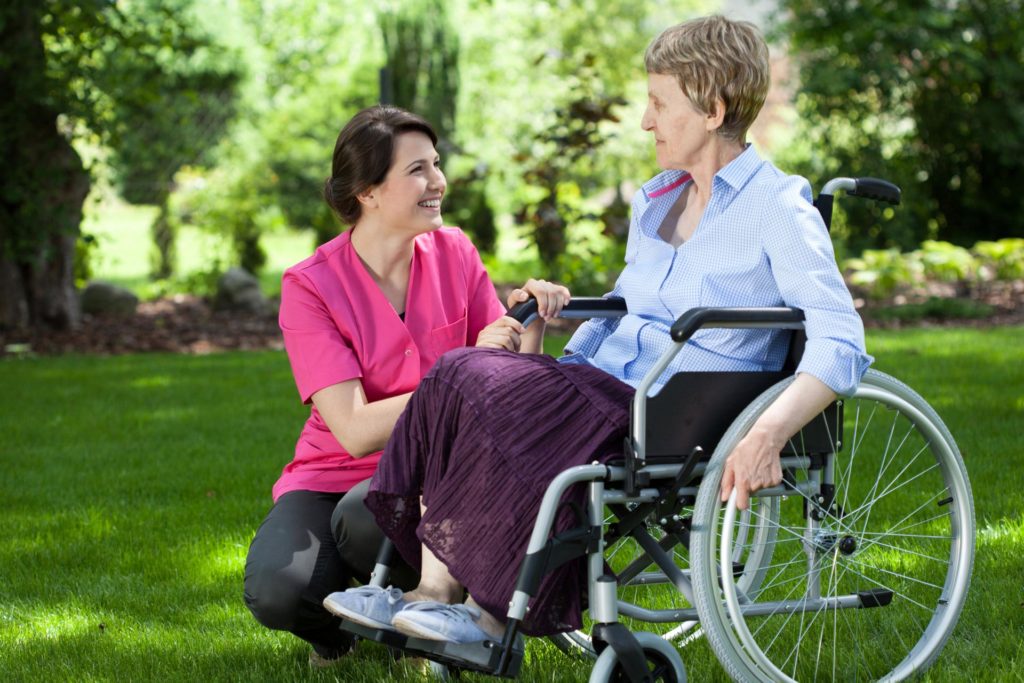

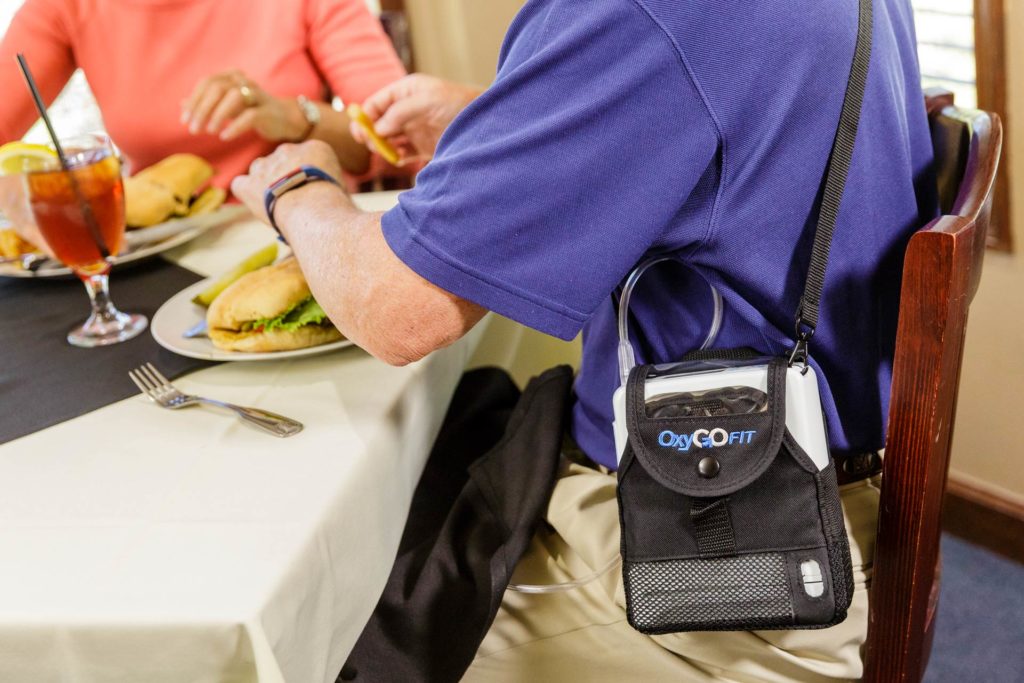
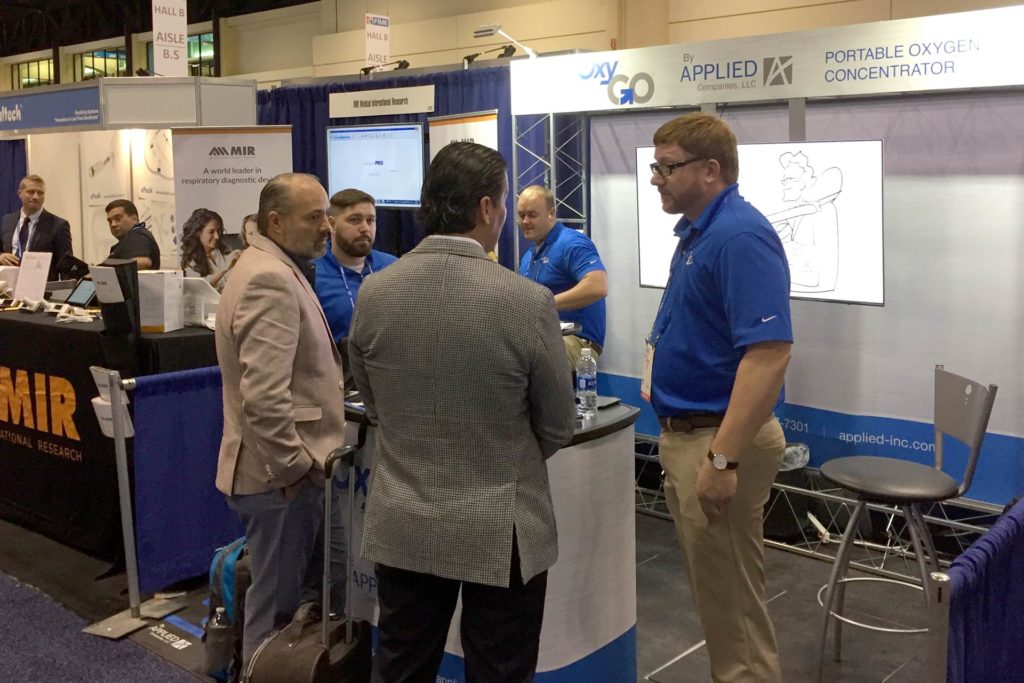


![Credit Financing Options]()
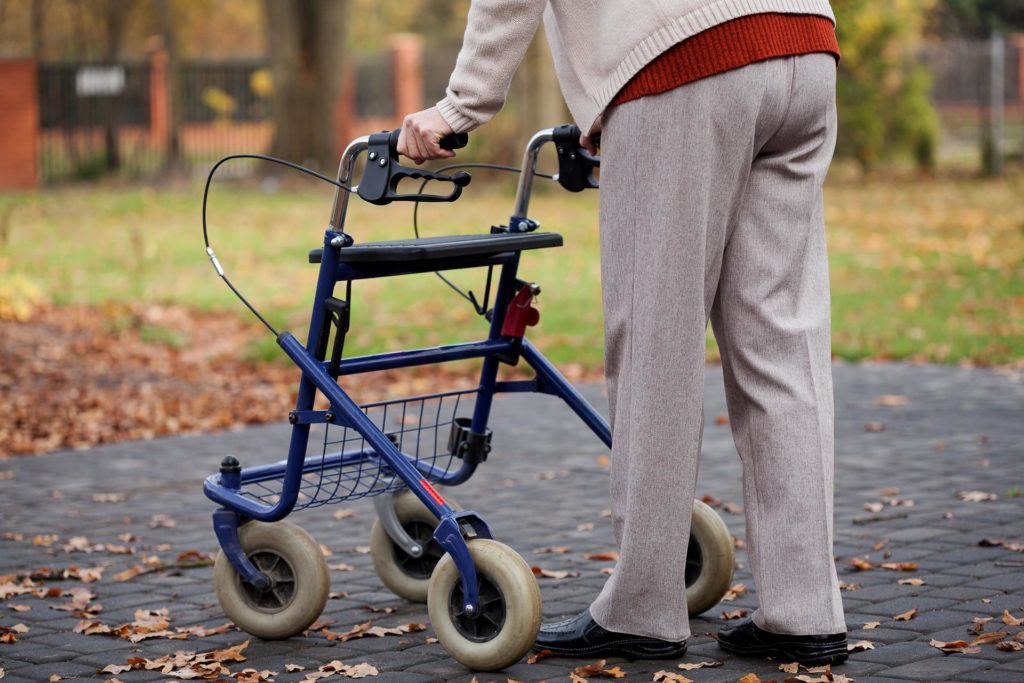


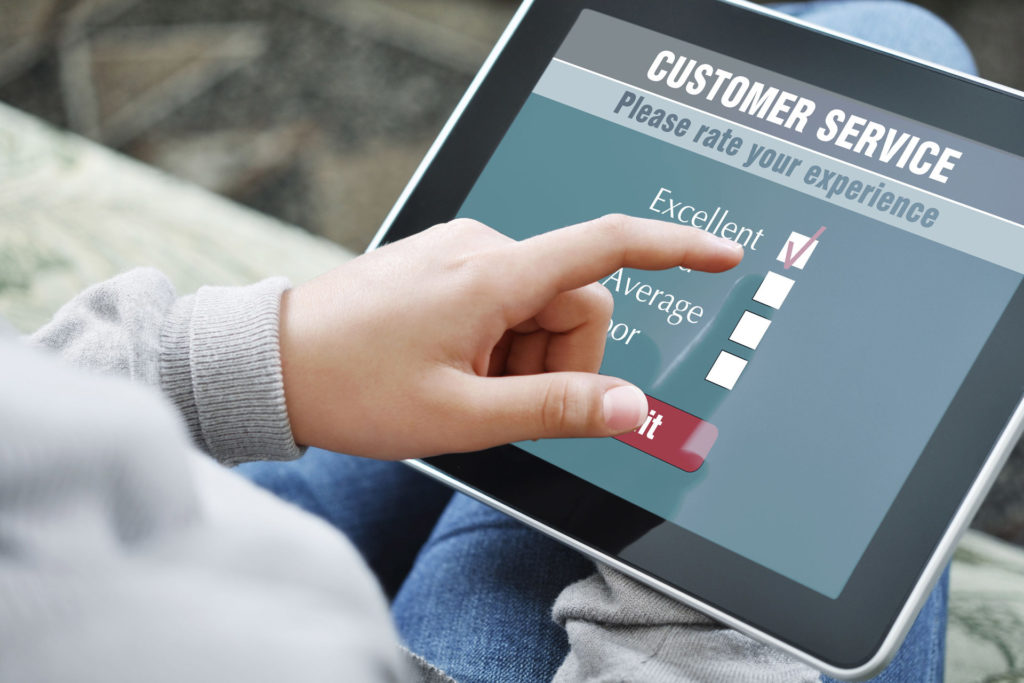





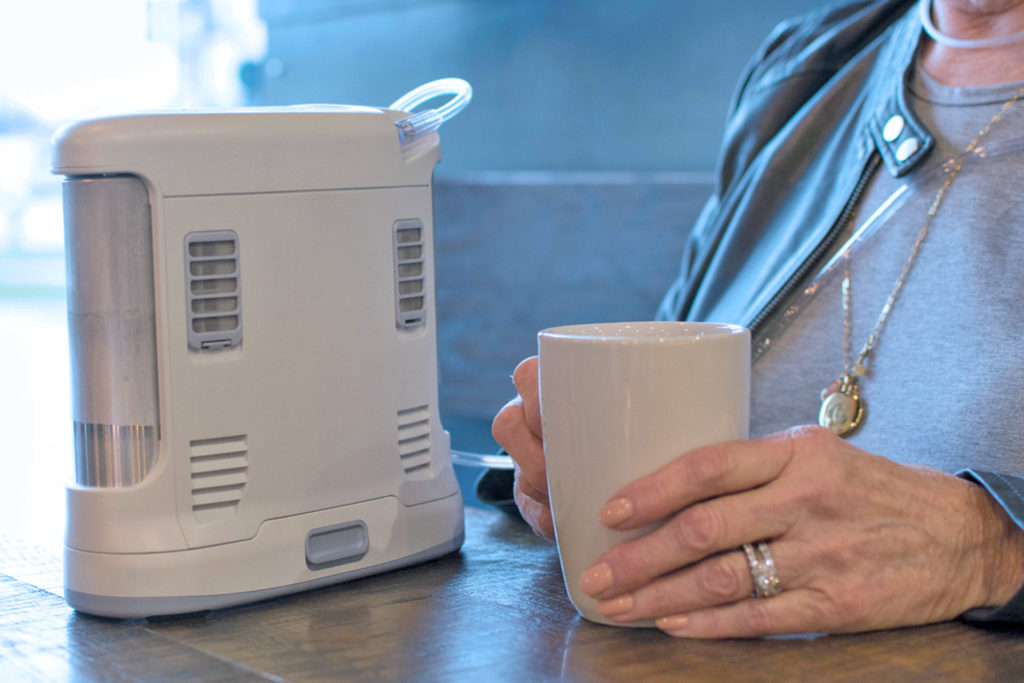

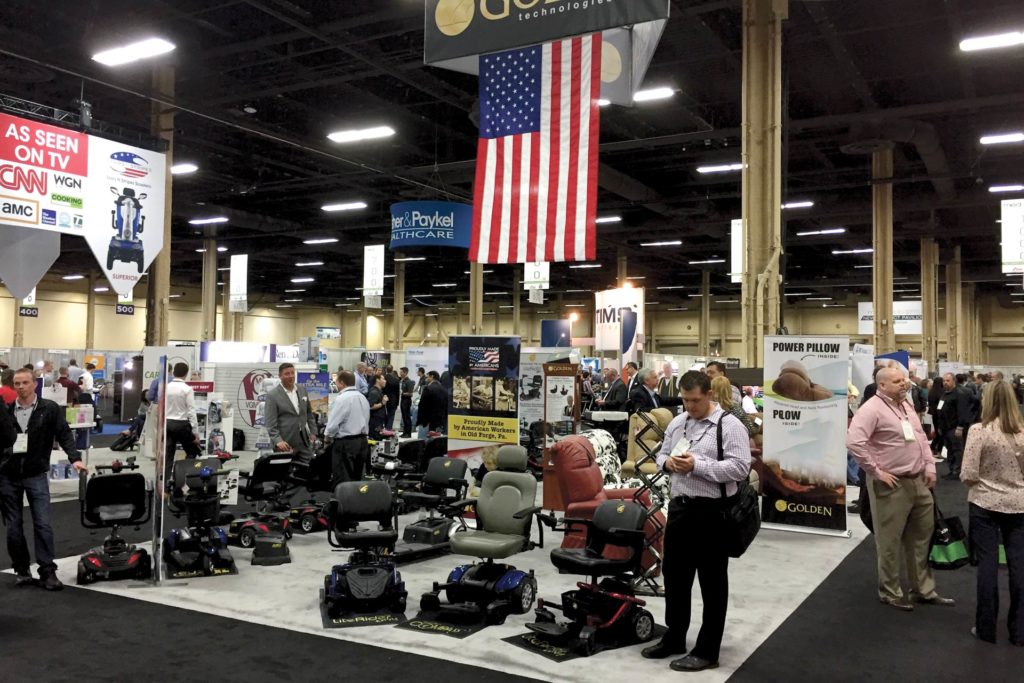


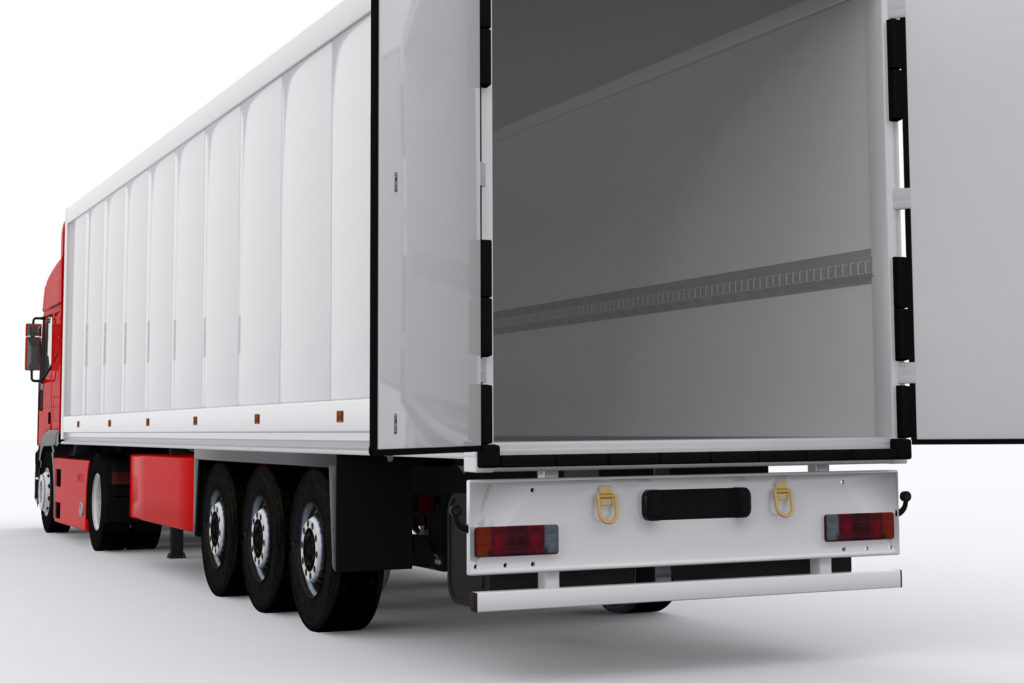
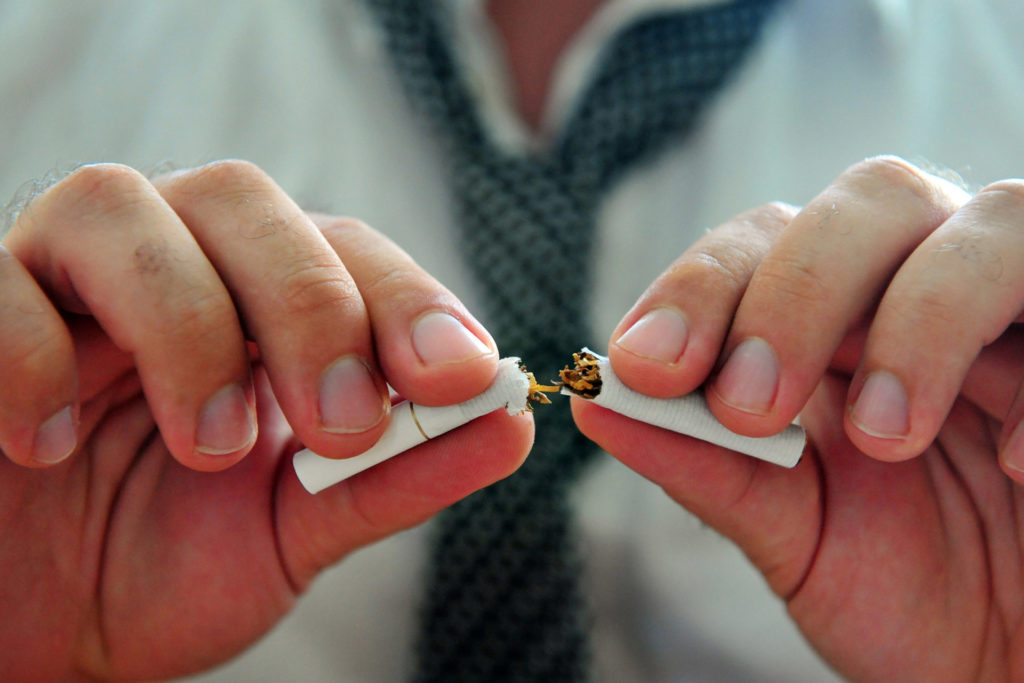

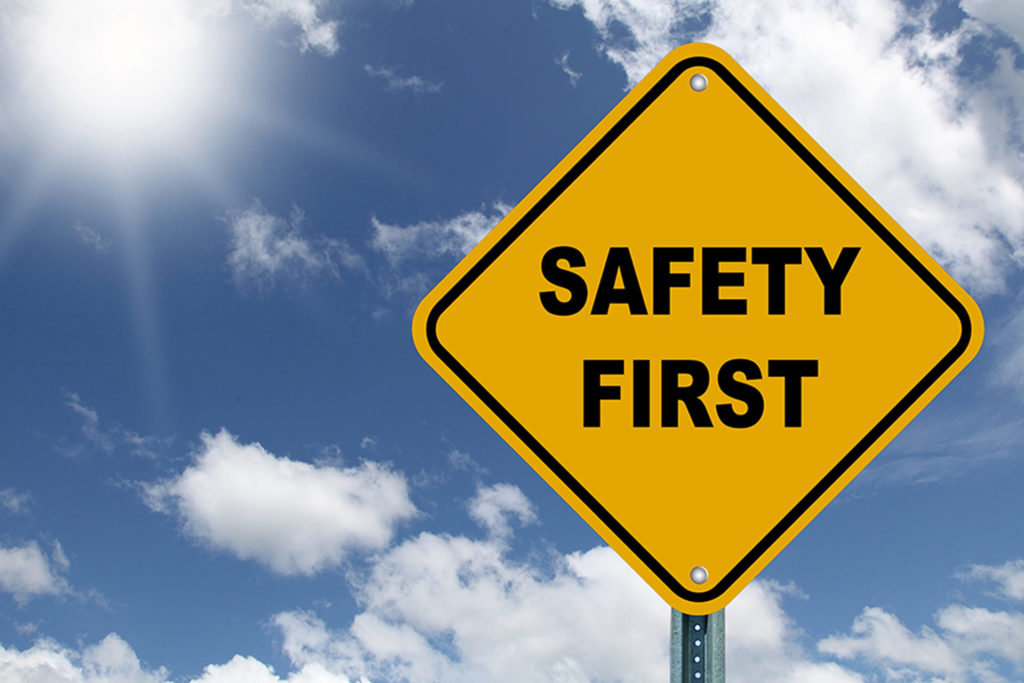
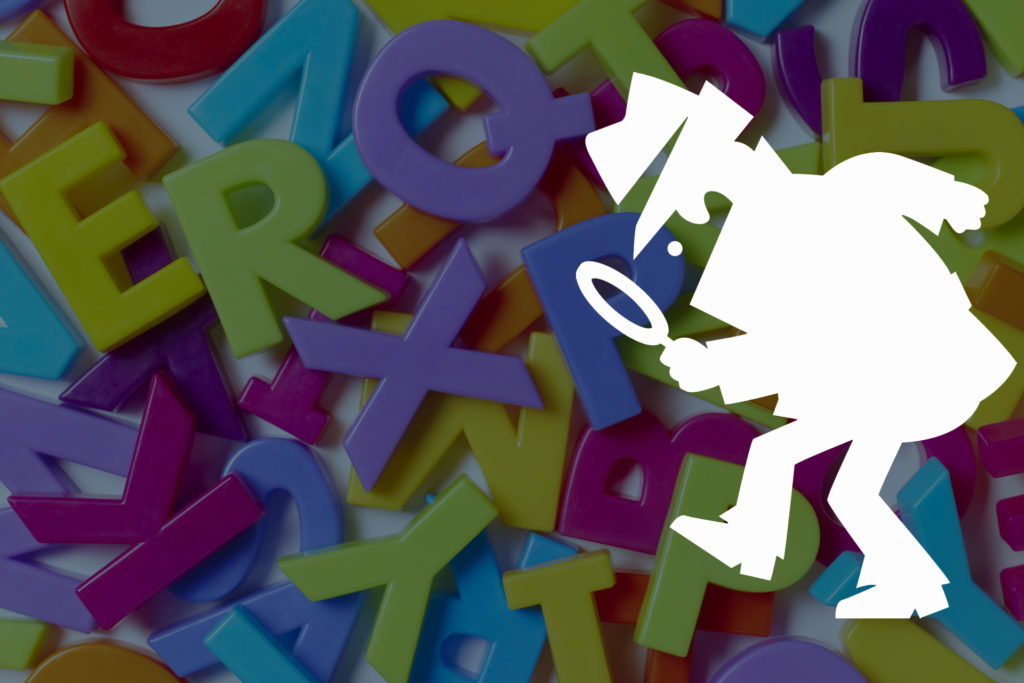
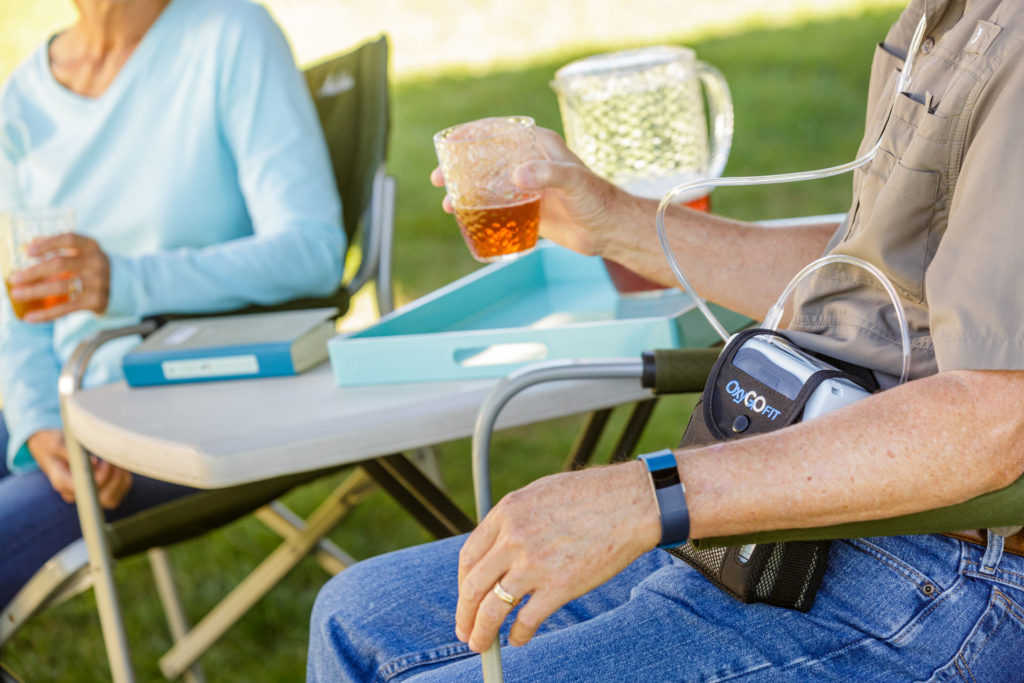

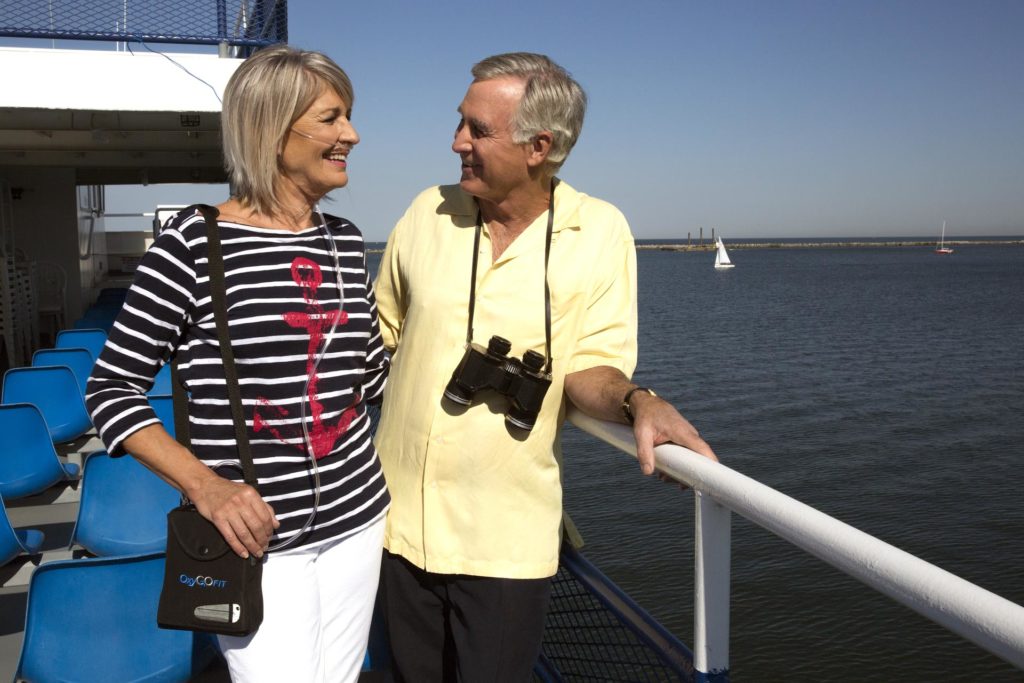


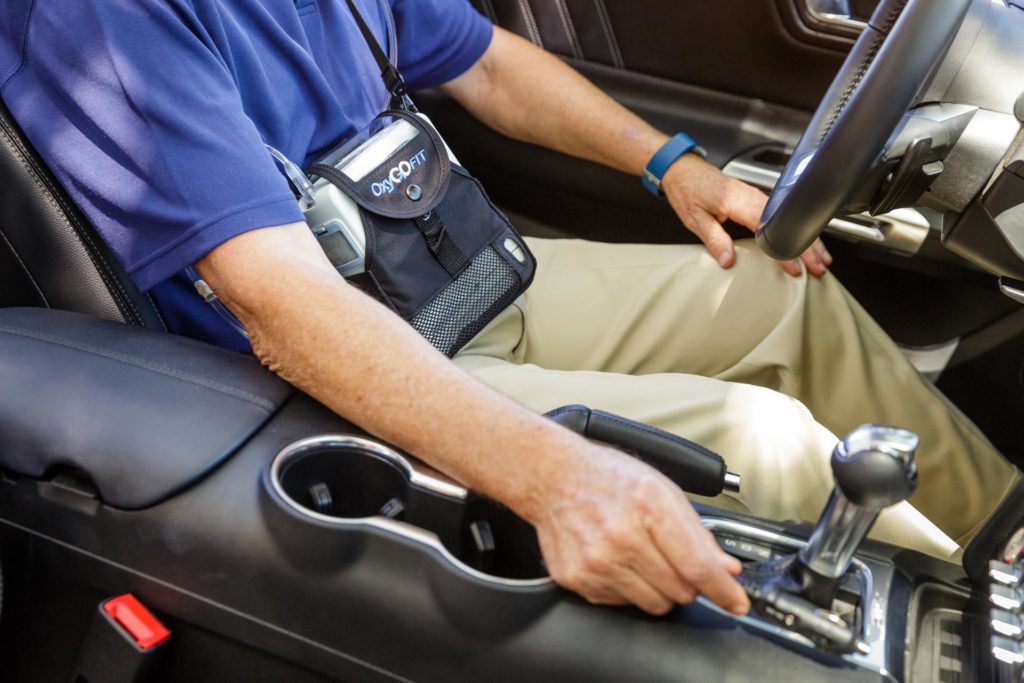
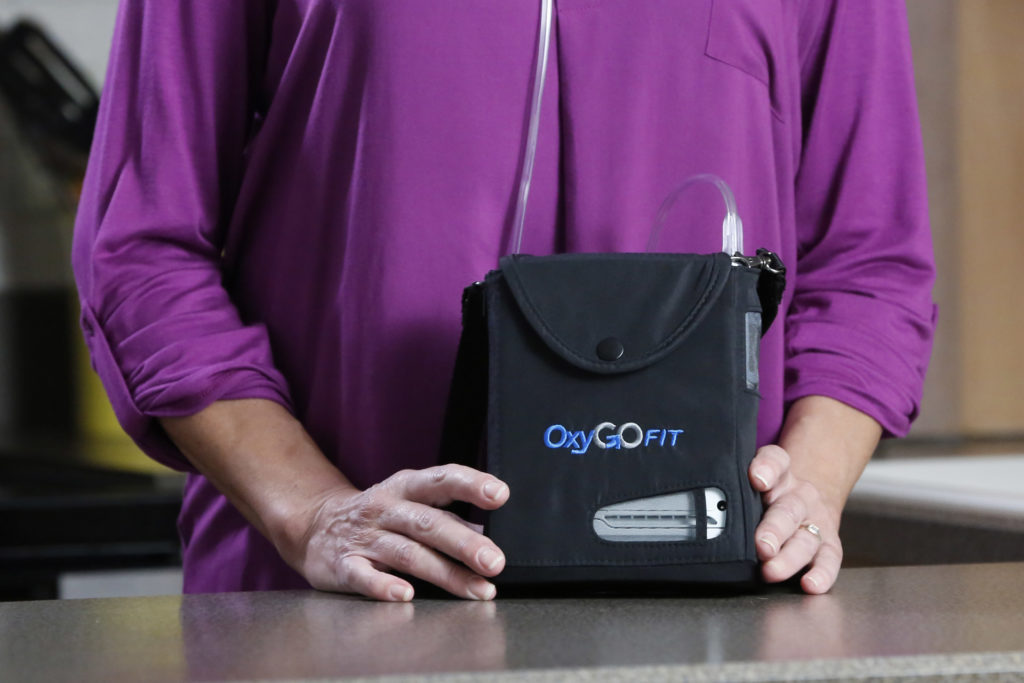

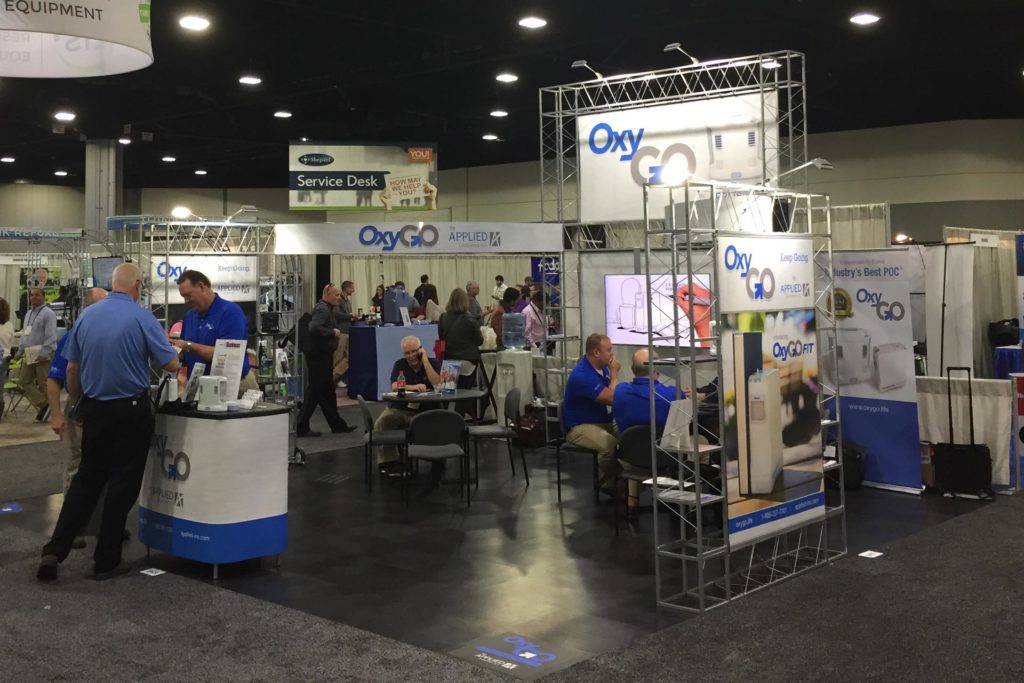

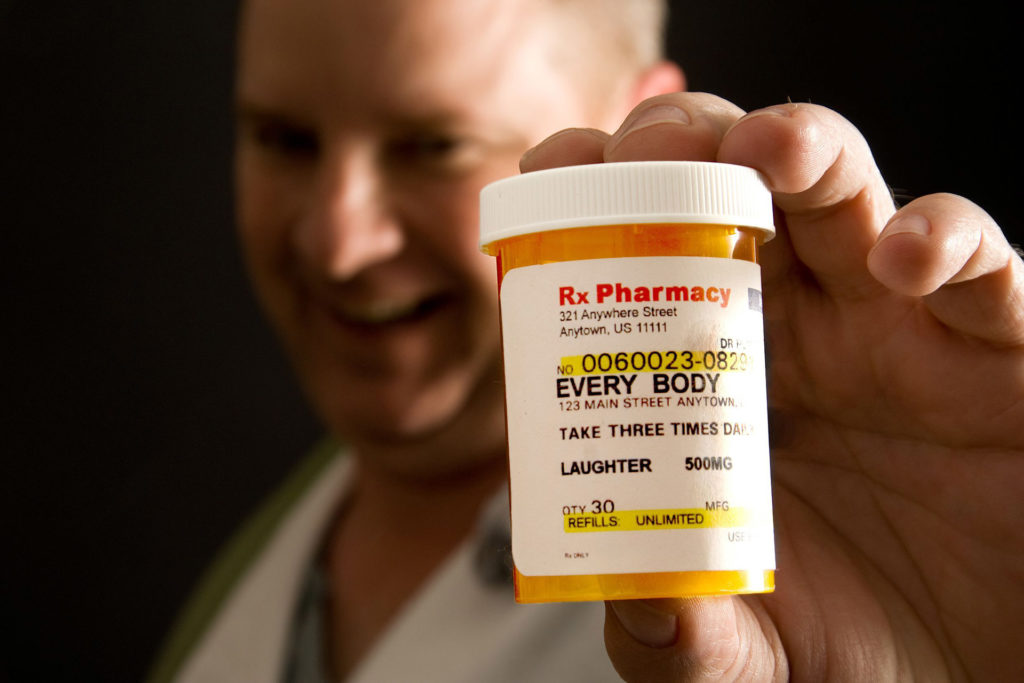

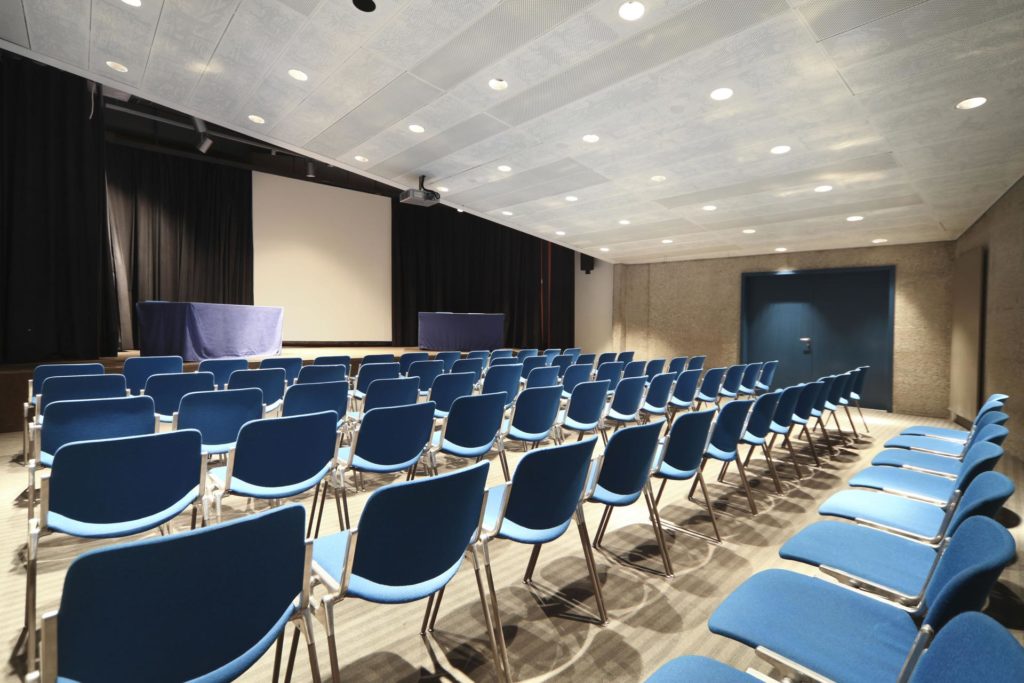



Just because a patient is on oxygen doesn’t mean that they are stuck at home and cannot travel. On the contrary, today it is much easier for the typical oxygen patient to travel by car, train, plane or cruise liner. Before the jet setting begins, here are a few tips you should advise your patients about before they leave home—to make it easier for both of you to breathe easy during any trip!
- Have the patient check with their doctor first. Patients need to consider avoiding places with extreme hot or cold temperatures, and places such as large cities with heavy pollution.
- Patients should keep a copy of their prescription with them. If their oxygen equipment malfunctions, a copy of the prescription will make acquiring a backup source of oxygen much easier to obtain.
- Patients who travel with a POC should carry a letter of necessity for oxygen with them. The FAA requires this when taking portable oxygen concentrators on board and they will have to show this to them when checking in.
- If traveling by air, a POC is the only way to go. High pressure cylinders and liquid vessels are not allowed onboard aircraft. The only approved oxygen source permitted on today’s flights are portable oxygen concentrators, and the FAA must approve each POC individually. The back label of the POC will have the FAA approval listed. Most airlines require that you have enough extra battery life to last at least 150% more time than the flight is scheduled to take. Do not plan on using any electrical outlets on board the aircraft.
- Advise patients to keep the name of their oxygen equipment provider and their phone number with them. In case of any problems, they can reach out to you for help.
- If travelling by car, advise the patient that all cylinders should be stored safely and secured in the vehicle. Never place cylinders in the trunk. As always, there is to be no smoking in or near the car when oxygen is in use.
- If the patient is renting a portable oxygen concentrator for the first time, advise them to pick it up several days before they leave on their trip. This will allow them to become familiar with the unit and ask any questions before they leave.
RELATED POSTS

OxyHome,Press Release,HME,DME,Concentrator,Oxygen
BY Laura Frederick
- April 13, 2023
OxyGo is proud to announce the launch of their latest product, the OxyHome 5L Stationary Concentrator....

FDA,Drug Reporting,Requirement,Transfillers,Drug Manufacturers
BY Brittany Fichter
- November 30, 2021
Applied Home Healthcare Equipment, along-trustedresource for oxygen filling, technical and regulatorysupportfor DME and HME providers,has announced th...

OxySafe,OxySafe2,Thermal Shut Off,Oxygen Safety,Medical Oxygen
BY Laura Frederick
- August 18, 2021
Westlake, OH – August 18, 2021 – Applied Home Healthcare Equipment, a long-trusted resource for oxygen filling, technical and regulatory support for D...

LIFE Corporation,OxyGo,Acquisition,Press Release
BY Carmella Arroyo
- May 10, 2021
OxyGoLLC, a leader in lightweight portable oxygen concentrators,has acquiredLIFECorporation,a manufacturer of medical devices that specializes in port...

Event
BY Brittany Fichter
- January 14, 2021
OxyGo, a company noted for providing high quality home healthcare oxygen products, announced that it will host its second annualOxygen EXPO2. The EXPO...

Social Media,Internet Safety
BY David Marquard
- October 22, 2020
Many of us who grew up working summer jobs in defense or other types of factories may remember seeing signs that had dire warnings to keep what we saw...

Timely Topic
BY Laura Frederick
- August 10, 2020
With the number of maintenance chemicals and standards out there, it can be a little overwhelming trying to figure out whats the right chemical to use...

The Oxygo Difference
BY Laura Frederick
- February 24, 2020
Portable oxygen concentrators, or POCs, are lightweight medical devices that dispense oxygen while being highly portable. They allow those prescribed...

Events
BY Laura Frederick
- January 31, 2020
DMEs from Oklahoma, Texas, Florida and across the country attended Oxygen EXPO2 in Orlando, FL on Jan 21st of this year. The expo, subtitled The NEXT...

Events
BY Laura Frederick
- December 13, 2019
Orlando, FL – (December 13, 2019) – OxyGo, a company noted for providing high quality home healthcare oxygen products, announced that it will host its...

News
BY Brittany Fichter
- November 20, 2019
Traveling with OxyGo NEXT is straightforward and simple. One reason is it so easy to travel with is because it meets all the Federal Aviation Admi...

News
BY Brittany Fichter
- October 14, 2019
FOR IMMEDIATE RELEASE: October 14, 2019
Orlando, FL: OxyGo LLC, a leader in the portable oxygen concentrator market celebrated their 5th anniversary...

Product Info
BY BRITTANY FICHTER
- September 17, 2019
The true death toll of home oxygen fires across the United States is likely to be higher than previous estimates by t...

Product Info
BY LAURA FREDERICK
- August 12, 2019
FOR IMMEDIATE RELEASE: August 12, 2019
Orlando, FL: OxyGo LLC, a leader in the portable oxygen concentrator market announced the launch of their new ...

Regulatory
BY LAURA FREDERICK
- July 15, 2019
June 15, 2019 – By Cara C. Bachenheimer for HomeCare Magazine
With the Medicare Durable Medical Equipment, Prostheti...

Technology
BY DAVE MARQUARD
- June 13, 2019
June 8, 2019 – By Dave Marquard, WEMCO Tech Chair
Curiosity has often driven me to action. In 1982 I purchased o...

Technology
BY LAURA FREDERICK
- February 19, 2019
FOR IMMEDIATE RELEASE: February 19, 2019
Orlando, FL: OxyGo LLC, a leader in the portable oxygen concentrator ...

The Oxygo Difference
BY ROB SALTZSTEIN
- October 03, 2018
OxyGo® is known for its amazing customer service, sales and marketing support. And its brand, Applied Home Healthcare Equipment, has long been trusted...

The Oxygo Difference
BY Victoria Marquard-Schultz
- May 27, 2018
You may have heard of The Centipede’s Dilemma:
A centipede was happy – quite!
Until a toad in fun
Said, “Pray, which leg moves after which?”
This rai...

Technology
BY DAVE MARQUARD
- May 18, 2018
“Beam me up, Scotty”
You are probably familiar with this iconic catchphrase that made its way into the popular cul...

The Oxygo Difference
BY Dave Marquard
- May 04, 2018
An acquaintance recently asked me how providers of home healthcare equipment might define what I like to think of as “The OxyGo Difference.” Id love ...

Events
BY ROB SALTZSTEIN
- April 28, 2018
There were lots of products to be seen and deals to be made at the recent Las Vegas Medtrade Show that ran March 27-29 at the Mandalay Bay Convention ...

Timely Topic
BY ROB SALTZSTEIN
- April 22, 2018
President Trump’s new tax law went into effect this year, boosting take home pay for about 90% of Americans. The amou...

Financing
BY BOB MCQUOWN
- March 19, 2018
For more years than I wish to count, CMS has been busy—working hard to decrease their funding of DME products. The re...

Retail
BY ROB SALTZSTEIN
- March 14, 2018
In July, 2017, American Association For Homecare published a vivid report that brought into focus the DME decline pla...

Product Info
BY LAURA FREDERICK
- March 11, 2018
ABSOLUTELY! Thousands of patients love the OxyGo® family of Portable Oxygen Concentrators, and so will yours. With th...

Timely Topic
BY ROB SALTZSTEIN
- March 09, 2018
Forget, for a moment, the problems caused by Competitive Bidding and shrinking government reimbursements. Think, inst...

Events
BY ROB SALTZSTEIN
- March 07, 2018
It comes to the Las Vegas Mandalay Bay Convention Center March 27-29. It’s the second largest trade show in the U.S. ...

Timely Topic
BY ERIN CLARK
- March 05, 2018
The population is aging, and as more people move closer to retirement and beyond, the importance of planning for long...

The Oxygo Difference
BY Erin Clark
- March 04, 2018
It is no secret that strong, reliable referral sources are crucial to any providers business. An effective, high-caliber network will give any HME the...

Customer Service
BY VICTORIA MARQUARD-SCHULTZ
- March 03, 2018
I was listening to some “oldies but goodies” on the radio recently and lyrics from Roy Orbison’s “Only the Lonely” (1...

The Oxygo Difference
BY Erin Clark
- March 03, 2018
It’s no surprise that having and achieving business goals are critical for any kind of success. Goals are necessary t...

The Oxygo Difference
BY Victoria Marquard-Schultz
- February 19, 2018
I was intrigued by an article I read recently in Cristaux, a design manufacturing company with a global vision that ...

The Oxygo Difference
BY BOB MCQUOWN
- February 15, 2018
In 2005 I was given the responsibility of starting a new homecare company from scratch for the Cleveland Clinic. It w...

Financing
BY VICTORIA MARQUARD-SCHULTZ
- February 12, 2018
It’s no secret that most home healthcare providers spend an inordinate amount time engaging various payors on behalf ...

The Oxygo Difference
BY ROB SALTZSTEIN
- February 12, 2018
Have you considered building special promotions that relate to national healthcare days and months? …
WHY NOT? Oppo...

Timely Topic
BY DAVE MARQUARD
- February 11, 2018
Before I started my own business I was a cop in the Cleveland, Ohio area. Police officers are trained to deal with ho...

Technology
BY ROB SALTZSTEIN
- February 09, 2018
Technology continues to transform every industry—and home healthcare is no exception.
As new medical tech trends continue to ...

Timely Topic
BY DAVE MARQUARD
- February 07, 2018
Many of us have enjoyed opportunities to visit Florida and other sunny destinations. Usually it’s a fun trip to soak ...

Timely Topic
BY DAVE MARQUARD
- February 05, 2018
The late great St. Louis Cardinal’s Hall-of-Fame pitcher Dizzy Dean once reportedly said: “It ain’t braggin’ if ya’ c...

The Oxygo Difference
BY ROB SALTZSTEIN
- February 03, 2018
Say hello to Robert “Bob” Gunner, one of the most dedicated exercise fanatics in Sugarland, Texas. Bob, an OxyGo® sal...

The Oxygo Difference
BY ROB SALTZSTEIN
- December 25, 2017
The Home Oxygen Company (HOC), with offices in Modesto and Sacramento, California, is all about doing what it takes t...

Timely Topic
BY ROB SALTZSTEIN
- December 20, 2017
“Be careful what you wish for, it might just come true.” … We’ve all heard that warning from time to time. With th...

The Oxygo Difference
BY ROB SALTZSTEIN
- December 16, 2017
Some classified ads are better than others.
Here is one of the best—an extremely well written classified ad for a DM...

Timely Topic
BY ROB SALTZSTEIN
- November 11, 2017
On September 10th the eye of Hurricane Irma crossed over Cudjoe Key, not far from Key West, FL and about 70 miles sou...

Customer Service
BY BOB MCQUOWN
- November 05, 2017
Good customer service is the most important value your company can provide to your customers. In a typical transactio...

Customer Service
BY VICTORIA MARQUARD-SCHULTZ
- November 03, 2017
The late great Alabama football coach Bear Bryant once made an observation always worth remembering: “It doesn’t cost...

The Oxygo Difference
BY DAVE MARQUARD
- September 15, 2017
Have you ever wondered what it might be like to be a venture capitalist and make the call on whether or not to invest...

Customer Service
BY BOB MCQUOWN
- September 09, 2017
Just because a patient is on oxygen doesn’t mean that they are stuck at home and cannot travel. On the contrary, toda...

Product Info
BY ROB SALTZSTEIN
- September 03, 2017
The POCs you sell or rent to oxygen patients today allow greater freedom than ever before for travel and independence...

Timely Topic
BY ROB SALTZSTEIN
- August 29, 2017
Do you have patients who were impacted by either Hurricane Harvey or Hurricane Irma? Or were you directly impacted as...

Retail
BY GUEST AUTHOR
- August 27, 2017
TV spots, radio, direct mail, paid search and social media are just some measurable ways to effectively reach new customers. Set a budget and test dif...

Other
BY DAVE MARQUARD
- August 23, 2017
CAUTION! Personal obsolescence in a leader/manager can manifest itself in organizational under-performance, less than...

Regulatory
BY ROB SALTZSTEIN
- August 22, 2017
As this issue of Home HealthCare TODAY went to press, the Food and Drug Administration called for comments on its fir...

Other
BY ROB SALTZSTEIN
- August 19, 2017
A new craze has been sweeping the country: rock painting! It’s being hailed as a new way of spreading happiness ...

Product Info
BY VICTORIA MARQUARD-SCHULTZ
- August 17, 2017
In a world where everything keeps getting more expensive, and portable concentrators seem to the be the next big thin...

Customer Service
BY VICTORIA MARQUARD-SCHULTZ
- August 17, 2017
Jim Harbaugh, the football coach at my alma mater, the University of Michigan, has a favorite saying:
“Attack eac...

Events
BY ROB SALTZSTEIN
- August 16, 2017
Once you arrive at Medtrade Fall 2017 in Atlanta… how do you make your time really count? As you take in the show and...

Retail
BY ROB SALTZSTEIN
- August 15, 2017
There is Texas ‘BIG’. And then there is Prairie Medical of Meridian, Idaho, ‘BIG’.
The territory this highly special...

Retail
BY ROB SALTZSTEIN
- August 15, 2017
Situated in Wickenburg, AZ, about 25-miles from Sun City, AZ, Discount Medical Equipment LLC caters to a well establi...

Regulatory
BY ROB SALTZSTEIN
- August 13, 2017
Sometimes what looks easy is quite complex. Take, for example, the Healthcare Insurance and Portability and Accountab...

Product Info
BY ROB SALTZSTEIN
- August 11, 2017
Every company has a reason to explain its existence and survival in a challenging and harsh business environment. Thi...

Events
BY ROB SALTZSTEIN
- August 10, 2017
The FIME 2017 Show (Florida International Medical Expo), which bills itself as “The Largest Medical Trade Fair Across...

Product Info
BY BOB MCQUOWN
- August 09, 2017
More and more homecare companies are purchasing portable concentrators because they recognize the need to decrease th...

Product Info
BY ROB SALTZSTEIN
- August 07, 2017
the occurrence and development of events by chance in a happy or beneficial way. good fortune; luck.
For Shirley Rice, a Sun City West, AZ, resident ...
Financing
BY DAVE MARQUARD
- August 05, 2017
Eleven years ago Muhammad Yunus, a Bangladeshi, won the Nobel Peace Prize for founding the Grameen Bank and pioneering the concepts of microcredit and...

Financing
BY BOB MCQUOWN
- August 03, 2017
Being Manager of Respiratory Therapy for the Cleveland Clinic was one of the most rewarding experiences of my life. W...

Customer Service
BY VICTORIA MARQUARD-SCHULTZ
- August 01, 2017
Once upon a time, in a kingdom far away from audits and competitive bidding, there lived a king and his beautiful dau...

The Oxygo Difference
BY DAVE MARQUARD
- June 30, 2017
Westlake Mayor Dennis M. Clough issued a proclamation marking it as “OxyGo Day” in the city of Westlake. The proclamation noted how the company’s conc...

Customer Service
BY ROB SALTZSTEIN
- June 25, 2017
As review sites have proliferated, a new industry has been spawned: reputation management and review alert firms that keep companies appraised about w...

Regulatory
BY ROB SALTZSTEIN
- June 23, 2017
Lets Patients Compare Home Health Agencies
Consumers are being given the opportunity to be smarter and wiser in their selection of home health agenci...

Business Tips
BY DAVE MARQUARD
- June 20, 2017
10 proven tech tips for every home healthcare DME
Benjamin Franklin was addressing fire prevention, not healthcare, when he coined the famous axiom “...

Technology
BY ROB SALTZSTEIN
- June 18, 2017
The future is now for DME’s keeping up with the latest advances in healthcare technology, especially in the area of telehealth. The big elephant in th...

The Oxygo Difference
BY ROB SALTZSTEIN
- June 14, 2017
Jason Flanigan, OxyGo’s® General Manager, has seen the future and it is loaded with high profit potential for DME’s and HME’s that ride the wave of ch...

Other
BY DAVE MARQUARD
- June 11, 2017
If you are like me, keeping track and making sense of all the zeroes in the millions, billions and trillions of dollars spent on U.S. healthcare is da...

Product Info
BY ROB SALTSTEIN
- June 09, 2017
Big surprises often come in small packages that can make a huge difference in a person’s life. Read one patient’s personal story…
For Cathy Work, a h...

Other
BY ROB SALTZSTEIN
- June 05, 2017
Newest healthcare data from the Bureau of Labor Statistics and Census Bureau show continued growth in the size, scope and cost of the U.S. healthcare ...

Events
BY ROB SALTZSTEIN
- June 02, 2017
“I think what’s NOT here from an exhibitor standpoint is almost as noticeable as what is on display here…”
said one veteran attendee traversing the ...

Business Tips
BY ROB SALTZSTEIN
- May 31, 2017
A DME supplier can no longer survive while being dependent on Medicare for fee-for-service… with competitive bidding, stringent documentation requirem...

Business Tips
BY ROB SALTZSTEIN
- May 29, 2017
The great early twentieth century sports and short story writer Damon Runyon wrote many memorable lines, perhaps none so famous as his observation tha...

Product Info
BY DAVE MARQUARD
- May 22, 2017
Recently CMS announced another round of oxygen reimbursement cuts. To combat this new decrease, you need to not only reduce your costs, but win more p...

Other
BY BOB MCQUOWN
- May 18, 2017
This past May, I wrote a column called “Keeping Concentrators New Car Smell Fresh”. It referenced how to deal with foul smelling rental equipment bein...

Business Tips
BY VICTORIA MARQUARD-SCHULTZ
- May 15, 2017
The crystal ball business can be tricky. This is especially true when it comes to predicting the degree to which new commercial technology will be acc...

Customer Service
BY ROB SALTZSTEIN
- April 28, 2017
Oxygen is very safe to have in the home when the following guidelines are followed. Are the following 16 tips included in your oxygen safety training ...

Regulatory
BY ROB SALTZSTEIN
- April 18, 2017
Every industry has a shorthand code for its prominent and frequently referenced terminology. Healthcare is no exception. In fact, for the outsider, th...

The Oxygo Difference
BY ROB SALTZSTEIN
- April 09, 2017
Missy Cross is a veteran in Ohio’s homecare industry who is paying close attention to recent CMS oxygen reimbursement cuts that can be as high as 16 p...

Product Info
BY DAVE MARQUARD
- April 05, 2017
In the aviation business there is an old saying that there are only two types of pilots: old pilots and bold pilots, but there are no old bold pilots....

Product Info
BY ERIN CLARK
- March 29, 2017
Pour on sales with OxyGo® POCs and their new super light model, the OxyGo FIT™.
New 30-seccod, 60-second and 120-second OxyGo and OxyGo FIT commercia...

The Oxygo Difference
BY ROB SALTZSTEIN
- March 22, 2017
How many texts do you receive in a day? … Emails? … How many websites do you read each day? … What about social media? Twitter? Facebook?
With techno...

Business Tips
BY ROB SALTZSTEIN
- March 18, 2017
With the start of a new year, it’s time to follow through on resolutions that every DME-focused business should seriously consider. Here’s a list of o...

Product Info
BY ROB SALTZSTEIN
- March 12, 2017
Marc Gordon created Newtec Medical Equipment LLC, Toms River, NJ, with the intent of bringing affordable new technology home respiratory equipment to ...

Product Info
BY BOB MCQUOWN
- March 08, 2017
At Medtrade Fall 2016, the OxyGo® booth was a very busy place to be. There was considerable buzz and excitement surrounding the introduction of OxyGo’...

Product Info
BY VICTORIA MARQUARD-SCHULTZ
- March 03, 2017
A Paradigm Shift Worth Noting
Bigger is NOT better when it comes to most home healthcare products. Medical device miniaturization is one of the cutti...

Events
BY ROB SALTZSTEIN
- February 27, 2017
Here’s the Atlanta Medtrade show in a nutshell:
“The show is dwindling. Fewer exhibitors, and fewer attendees—but o...

Other
BY ROB SALTZSTEIN
- February 25, 2017
The U.S. Bureau of Labor Statistics has made it official…
Healthcare employment is leading the nation in fast paced growth. Statistics available to H...

Timely Topic
BY ROB SALTZSTEIN
- February 20, 2017
Winter is a particularly challenging time for healthcare workers. This is true because healthcare workers often find themselves interacting with sick ...

Regulatory
BY VICTORIA MARQUARD-SCHULTZ
- February 14, 2017
If you received a letter from the FDA, and it said the following, would you know what it meant?
“Written procedures are not established for evaluati...

Events
BY ROB STALTZSTEIN
- February 09, 2017
Medtrade’s annual fall show concluded in Atlanta (October 31 – November 3) with new products galore on display and over 90 educational sessions. Atten...

Events
BY BOB MCQUOWN
- February 03, 2017
I feel fortunate to have attended the recently concluded fall 2016 Medtrade show in Atlanta. It reminds me that the more things change, the more they ...

The Oxygo Difference
BY VICTORIA MARQUARD-SCHULTZ
- January 30, 2017
As we begin this new year, I am willing to make a bet. I will bet the best performing DME’s and HME’s almost always are those homecare medical provide...


